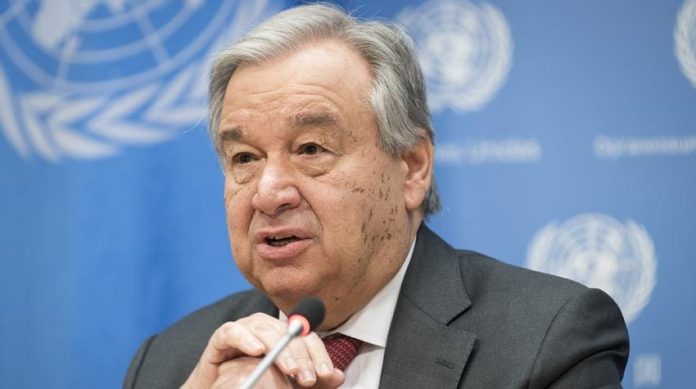In an emergency session of the United Nations Security Council, UN Secretary-General António Guterres strongly condemned the U.S. strikes on three Iranian nuclear facilities, calling the action a “perilous turn” in an already volatile region, reported the UN News.
“These retaliatory strikes risk plunging the Middle East into another devastating cycle of destruction,” Guterres said during the 15-nation council meeting. “From the outset, I have urged restraint. Now, the choice is stark—between widening war or renewed diplomacy.”
The strikes, conducted on June 22 in support of Israel’s ongoing war campaign, targeted the Natanz, Fordo, and Isfahan nuclear sites. U.S. President Donald Trump claimed the mission had “completely and fully obliterated” the facilities using 30,000-pound bunker-buster bombs.
Iran’s ambassador to the UN, Amir Saeid Iravani, called the strikes a violation of the UN Charter and international law, urging the Security Council to hold the U.S. accountable.
Guterres emphasized the urgent need to resume negotiations on the Iran nuclear deal under full IAEA oversight. “We need a credible, comprehensive, and verifiable solution. The world must act with reason, restraint, and urgency,” he said.
IAEA chief Rafael Grossi voiced serious concerns, warning that the strikes caused “sharp degradation” of nuclear safety and could pose grave radioactive risks, particularly if Iran’s operational nuclear power plant at Bushehr is targeted. “A direct hit on Bushehr could release a very high level of radioactivity,” he warned.
Grossi confirmed substantial damage at Natanz, including its underground enrichment halls. He reiterated that such military escalations delay essential diplomacy and endanger regional and global security.
Iran’s Foreign Minister condemned the U.S. for attacking what it claims are peaceful nuclear installations and declared that Iran reserves the right to self-defense under the UN Charter.
Assistant Secretary-General Miroslav Jenča described the moment as “dangerous,” noting Iran’s possible retaliation and the evacuation of sites before the attack, along with the relocation of highly enriched uranium.
Meanwhile, Iran’s Parliament supported closing the Strait of Hormuz trade route, escalating the geopolitical risk. Regional armed groups like the Houthis have also warned of retaliatory action, heightening the threat of a broader regional catastrophe.




